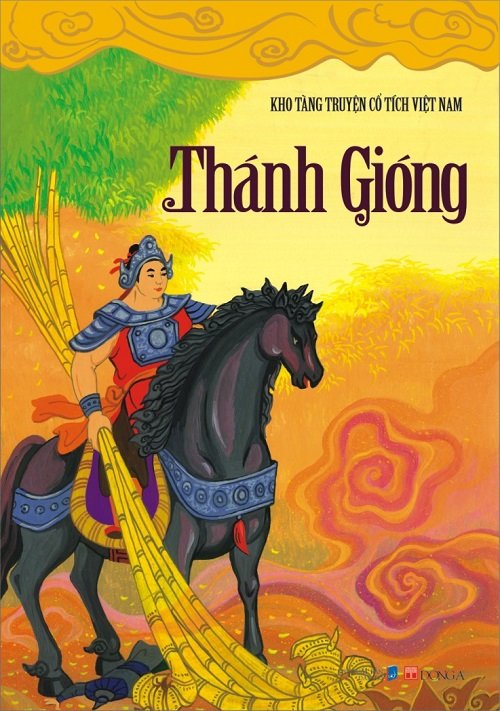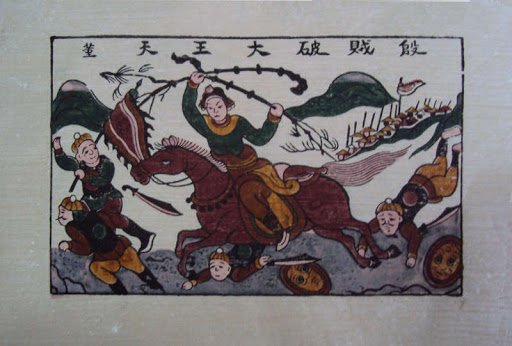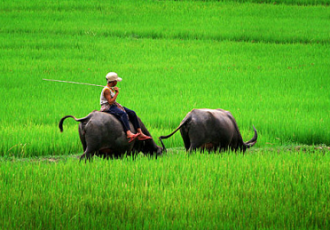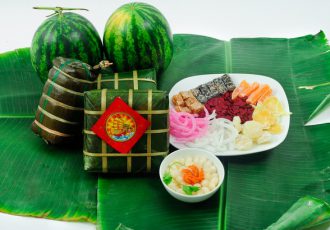Thanh Giong and his legend
During the reign of the sixth king of the Hung Dynasty, the Southern Kingdom experienced difficult times. The aggressors (AN) burned its pity villages and CITIES and ransacked fields and soups. No one could resist them. Nothing could stop this deadly flow.
The lamentations and cries for help rose to Heaven. The heavenly empress was taken with compassion for this suffering people; he summoned the Genius to melt her, Set, and spoke to her thus: “It is time for you to pay your debts and repair the damage you have caused to men. Send your son to earth, that he may save this kingdom.”
That night, the Emperor appeared in a dream to King Hung Vuong and commanded him to search across the country for a hero capable of confronting the enemy and saving the homeland.
At the same time, in a village then called Kedong, lived a woman who was no longer young, but still single. One day when she was weeding her flowerbeds, she discovered a gigantic footprint. She put her foot on it. No sooner had she made the gesture than she felt a flash of fire running through her entirety. Soon after, she gave birth to a son, whom she named Giong. The child grows normally. Yet he didn’t laugh, he didn’t tweet as infants do. At the age of three, he had never uttered a word before. He spent his jornées lying down without moving. One day, the king’s envoys on the way to look for a hero to save the homeland, arrived in the village of KeDong! As soon as their trumpets sounded, Giong stood up abruptly and said, “Mom, bring the king’s envoys!”

Stunned, the mother ran to get them: “Go back to the court on the spot and tell the king that I need a giant bronze horse,” the little boy ordered the stunned messengers.
“Let him also make me forge a sturdy armour, an iron helmet and a sharp sword. With this, I will annihilate the enemy!”
The royal envoy did not dare to reply. He jumped in the saddle and galloped without stopping to the Court. When the king was made aware of the boy’s demands, he remembered his dream, he immediately summoned his ministers and mandarins to inform them of the matter and ask them to do what the boy had requested.
As for Giong, from the day he first spoke, he began to grow in an extraordinary way. He ate a lot. The new clothes that his mother made for him in the morning cracked the same evening at the seams. For a long time now, the poor woman no longer had enough rice to feed him, nor cloth to clothe him. But from the whole village, and soon from all the surroundings, people came to bring what little they had to this extraordinary boy.
The horse and equipment were sent to KeDong. As soon as Giong lightly patted the back of his mount, it collapsed like a pile of sand. The second was sent to him shortly afterwards, although larger and sturdier than the first, the second did not withstand the weight of the young man better. When he wanted to try on the armour, the metal plates jumped from all sides. Frightened, the messengers returned to the court and told the king what had happened. The king ordered to melt all the drums, all the gons, all the bronze bells. In the four corners of the country, day and night, the people forged, the flames of the forges roared, and sweat flowed freely. Finally, the work was completed. The hero came out of his house, put on the helmet, put on his armour and got into the saddle, his iron whip in his hand. Immediately, the bronze horse came to life: it let out a resounding neighing, and flames came out of its nostrils. Giong greeted everyone, pricked spurs, and flew away in the middle of the enemies. He chased with his fury all those who had devastated his country. When the whip broke in turn, he tore off bamboos and thus finished annihilating the enemy troops. The hero galloped towards the Soc Son Mountains, where He stripped himself of his armour and looked around this country he loved. Finally, he sealed his horse and whispered with emotion “Good luck, my Southern Kingdom!” and he went back to Heaven.

The king built the village and renamed Phu Dong a temple in honour of the saviour of the fatherland, and Giong was awarded the title of Heavenly Prince of Phu Dong. This temple exists today and one always comes to admire in this place the traces left by the hooves of the bronze horse, traces that have become over time a series of small circular lakes. As for the bamboos that grow in this region, they seem reddened by flames, the flames that once came out of the horse’s nostrils. Since then, every year, a great festival celebrates the victory of the hero Giong on the ninth-day fourth lunar month.



